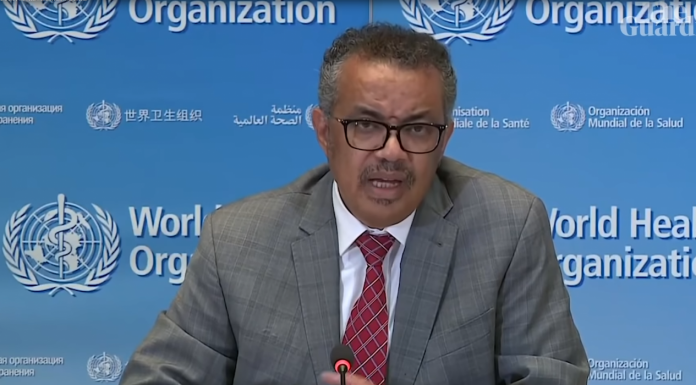The World Health Organization announced in a press release titled “Immunizing the public against misinformation” that it is partnering with an analytics corporation to develop a “social listening” program.
The social listening program will look through social media posts to root out “coronavirus misinformation,” Reclaim The Net reported.
Already, the WHO has been deeply involved with selective fact-checking operations at social-media sites like Facebook, despite its links to helping the Communist Chinese Party downplay the virus early on. That cost valuable preparation time for other countries including the U.S.
President Donald Trump, after calling on the WHO to acknowledge its corruption and accept responsibility for its actions, subsequently sought to defund and withdraw from the United Nations-backed organization.
But its corrupt leadership has continued to lead the charge in promoting a false narrative that deflects from the true culprits while accusing others of spreading the lies.
“We’re not just battling the virus,” WHO Director-General Tedros Adhanom Ghebreyesus said. “We’re also battling the trolls and conspiracy theorists that push misinformation and undermine the outbreak response.”
The WHO claimed there is an “infodemic,” which the organization defines as “an overabundance of information and the rapid spread of misleading or fabricated news, images, and videos.”
Tim Nguyen, who works for the WHO’s Information Network for Epidemics, said that it is not effective enough for public health authorities to debate with critics of their orders, so they have to prevent criticism in the first place.
“Countering fake news or rumors is actually only responding or mitigating when it’s too late,” he said.
The WHO said that disorder was caused when rumors were spread about food shortages in the United States. They said these rumors led to hoarding and real shortages.
In a politically motivated example, the WHO noted that an Arizona couple drank fish-tank cleaner after President Donald Trump said hydroxychloroquine showed potential for treatment of COVID-19.
But the WHO neglected to mention that the woman, later identified as a radical left-wing activist with a history of lawsuits and mental illness, is now being investigated for foul play in the poisoning of her husband. And the case has become a textbook example of media gaslighting to promote a false anti-Trump narrative.
“What we’ve learned now, after two and a half months of doing this kind of analysis, is that there are recurring themes and topics that are coming back over and over again,” Nguyen said.
“What that means to us is that we need to re-push information at different times,” he said. “People may not understand it the first time when we push it, but when the questions and issues come up later, it means it’s time to push it out again.”

